Pterocarpus Marsupium: A Powerhouse Ingredient in Natural Skincare
This spotlight article focuses on the active botanical - Pterocarpus marsupium.
While hard to pronounce, you'll want to consider including it in your routine for its anti-aging and skin-brightening effects.
Overview of Pterocarpus Marsupium
Pterocarpus marsupium, or as it's more commonly known, the Indian Kino Tree or Malabar Kino, is a large, deciduous tree that originally comes from India and Sri Lanka. This plant is seriously respected for its range of health and wellness properties, and it's been a mainstay in traditional and Ayurvedic medicine for a long time. Recently, it's started making waves in the skincare world, and it is a great example of how some of the best ingredients come from a mix of nature and science.
Pterocarpus marsupium is a standout in the Fabaceae family. The heartwood of this tree is prized because it's tough and lasts a long time. But it's actually the bark that's the star of the show - it's loaded with healthy phytochemicals. The tree also produces a reddish resin from its trunk, which has led to its nickname, the "Indian Kino."
This tree has been a key player in Ayurvedic medicine for centuries. Everything from the bark to the leaves and even the resin have been used for a variety of health uses. Traditionally, it's been used to handle things like diabetes, inflammation, and different skin problems, which really highlights how versatile this plant is as a therapeutic resource.

The Science Behind Pterocarpus Marsupium
As someone who specializes in natural skincare ingredients, I find the transition from traditional uses to scientific validation a fascinating journey.
The bark, which peels off in large flat pieces, has a surface marked with deep vertical and horizontal fissures. It's within this bark where the magic happens; it is rich in bioactive compounds that offer numerous health benefits.
Phytochemical Composition and Properties
Pterocarpus marsupium bark extract is a goldmine of beneficial compounds. The bark is full of flavonoids, tannins, and phenolic compounds, all doing their part to boost health in their own unique ways. Epicatechin, a flavonoid, has shown promise in managing blood sugar levels, while the phenolic compounds are praised for their antioxidant powers.
So how powerful is this antioxidant??
Comparing the antioxidant power of one substance to another is tricky. The gold standard can change based on the method used for testing and the concentration of the antioxidant. However, it's worth noting that pterostilbene, a star player in the Indian Kino Tree, might be more powerful than resveratrol, an antioxidant found in things like red wine and berries.
Pterostilbene is a lot like resveratrol but has extra methoxy groups, which could make it more bioavailable and more effective as an antioxidant. That's a big win for skincare since topical antioxidants' success often comes down to how well they can penetrate the skin.
While we still need more research to understand the relative antioxidant power fully, early signs point to Pterocarpus marsupium being a strong source of antioxidants.
Benefits of Pterocarpus Marsupium in Skincare
Skincare goes far beyond just looking good; it's about feeling good and nourishing your skin to enhance its overall health.
As a natural skincare user and creator, I've seen first-hand the transformative effects of Pterocarpus marsupium extract as an ingredient.
Antioxidant Properties and Skin Health
Pterocarpus marsupium benefits start with its antioxidant properties, which come from its rich flavonoid and phenolic compounds. These antioxidants protect the skin from harmful free radicals, slowing down the aging process and enhancing skin's natural glow.
Anti-Aging Benefits
The antioxidant and anti-inflammatory properties of Pterocarpus marsupium are a powerful duo against signs of aging. By protecting against free radical damage and reducing inflammation, this extract helps to maintain the skin's elasticity and minimize the appearance of fine lines and wrinkles. It's a good addition to both anti-aging and anti-inflammaging skincare routines.
Skin Whitening and Brightening
The claim to fame for this ingredient is its skin-whitening properties. At a concentration of 90% Pterostilbene, one commercially available form of this ingredient (trademark name Pterowhite -- an active botanical produced by Sabinsa) has been shown to inhibit melanin production in cultured human cells.
In their experiments, it was notable that the skin lightening effect was stronger than both kojic acid and resveratrol.
The whitening properties makes this ingredient a natural alternative to hydroquinone. Although the two ingredients haven't been tested head-to-head in a research trial, consumers who want to treat facial hyperpigmentation in a more natural fashion could consider trying it.
Anti-Inflammation and Wound Healing
Some small studies, primarily done in animals, have shown pterostilbene to facilitate wound healing and strengthen the skin barrier. This, in conjunction with human data that shows a lack of irritation in users suggests its a safer ingredient for those prone to sensitive skin.
Protection from UV Damage
Likely due to the antioxidant power and ability to fight free radicals, pterostilbene has also been studied for sun protective effects. This might be an ingredient that can enhance the effectiveness of suncare products. However, it should not be used as a sunscreen unless products have had proper, formal SPF testing.
Anti-Cancer Potential
While research is still in the early stages, preliminary studies suggest that pterostilbene may have potential anti-cancer properties. It's yet another testament to this ingredients impressive range of benefits.
It's important to note that many skincare ingredients have shown similar anti-tumour possibilities in lab studies, and much of the research has been done on diabetic rats or other animals. Still, the power of nature is inspiring!
Safety and Potential Side Effects of Pterocarpus Marsupium
Safety is always paramount. As biotechnological advances continue, more and more powerful, concentrated, natural actives will become available. This is usually good! However, side effects like irritation or allergic reactions are always possible - even more so when ultra-concentrated phytochemicals are used.
Pterocarpus marsupium bark extract is considered safe for topical use. However, there is a lot to know when it comes to lightening vs brightening your skin. As with any new skincare ingredient, it's always recommended to conduct a patch test before full application to ensure no allergic reactions occur.
Sustainability Considerations
Sustainability is a critical concern in the harvesting and production of ingredients for natural products.
As of the last review in 2017, the IUCN lists this tree as decreasing in population numbers with the potential to become a threatened species - a situation that could become dire by 2050 if climate change continues.
So, although I love the ingredient and its powerful results, it's on the bareLUXE watch list for now. Unfortunately there can be a dark side to plant-based skincare ingredients, one consumers must be aware of.
Summary
From a personal perspective, I've seen the effects of Pterocarpus marsupium from my formulations, and the feedback has been overwhelmingly positive. It is said to brighten better than kojic acid, likely due to its enhanced penetration - something that may be further enhanced by the fact we deliver this ingredient in an oil-based serum. You can find it featured in our Vitamin C Oil for Brightening.
As research continues to uncover this ingredients potential, I'm confident it will become a staple in many more skincare formulations in the future.
However, the potential for sustainability issues makes it a grey-zone ingredient for me. If demand exceeds supply and if the supply chain cannot prove sustainable practices, then this ingredient may find itself on our cutting room floor.
References
Majeed M, Majeed S, Jain R, Mundkur L, Rajalakshmi HR, Lad PS, Neupane P. An Open-Label Single-Arm, Monocentric Study Assessing the Efficacy and Safety of Natural Pterostilbene (Pterocarpus marsupium) for Skin Brightening and Antiaging Effects. Clin Cosmet Investig Dermatol. 2020 Jan 31;13:105-116.
Chaiprasongsuk A, Panich U. Role of Phytochemicals in Skin Photoprotection via Regulation of Nrf2. Front Pharmacol. 2022 May 12;13:823881.
Majeed M, Majeed S, Jain R, Mundkur L, Rajalakshmi HR, Lad P, Neupane P. A Randomized Study to Determine the Sun Protection Factor of Natural Pterostilbene from Pterocarpus Marsupium. Cosmetics. 2020; 7(1):16.
Majewski G, Craw J, Falla T. Accelerated Barrier Repair in Human Skin Explants Induced with a Plant-Derived PPAR-α Activating Complex via Cooperative Interactions. Clin Cosmet Investig Dermatol. 2021 Sep 18;14:1271-1293.
Sirerol JA, Feddi F, Mena S, Rodriguez ML, Sirera P, Aupí M, Pérez S, Asensi M, Ortega A, Estrela JM. Topical treatment with pterostilbene, a natural phytoalexin, effectively protects hairless mice against UVB radiation-induced skin damage and carcinogenesis. Free Radic Biol Med. 2015 Aug;85:1-11.
Hu W, Yu H, Zhou X, Li M, Xiao L, Ruan Q, Huang X, Li L, Xie W, Guo X, Yao P. Topical administration of pterostilbene accelerates burn wound healing in diabetes through activation of the HIF1α signaling pathway. Burns. 2022 Sep;48(6):1452-1461.
Dr. Heather Smith developed her love for skinimalism and clean beauty years ago when she began making home remedies for her newborn's eczema. She is an expert in natural ingredients and active botanicals and has now launched bareLUXE Skincare - a full line of effective oil serums. She dedicates this blog to consumers who are researching ingredients and working to make their beauty ritual more natural and sustainable.

MEDICAL DISCLAIMER
This content is for informational and educational purposes only. It is not intended to provide medical advice or to take the place of such advice or treatment from a personal physician. All readers/viewers of this content are advised to consult their doctors or qualified health professionals regarding specific health questions. Neither Dr. Smith nor the publisher of this content takes responsibility for possible health consequences of any person or persons reading or following the information in this educational content. All viewers of this content should consult their physicians about their skincare concerns and routines.


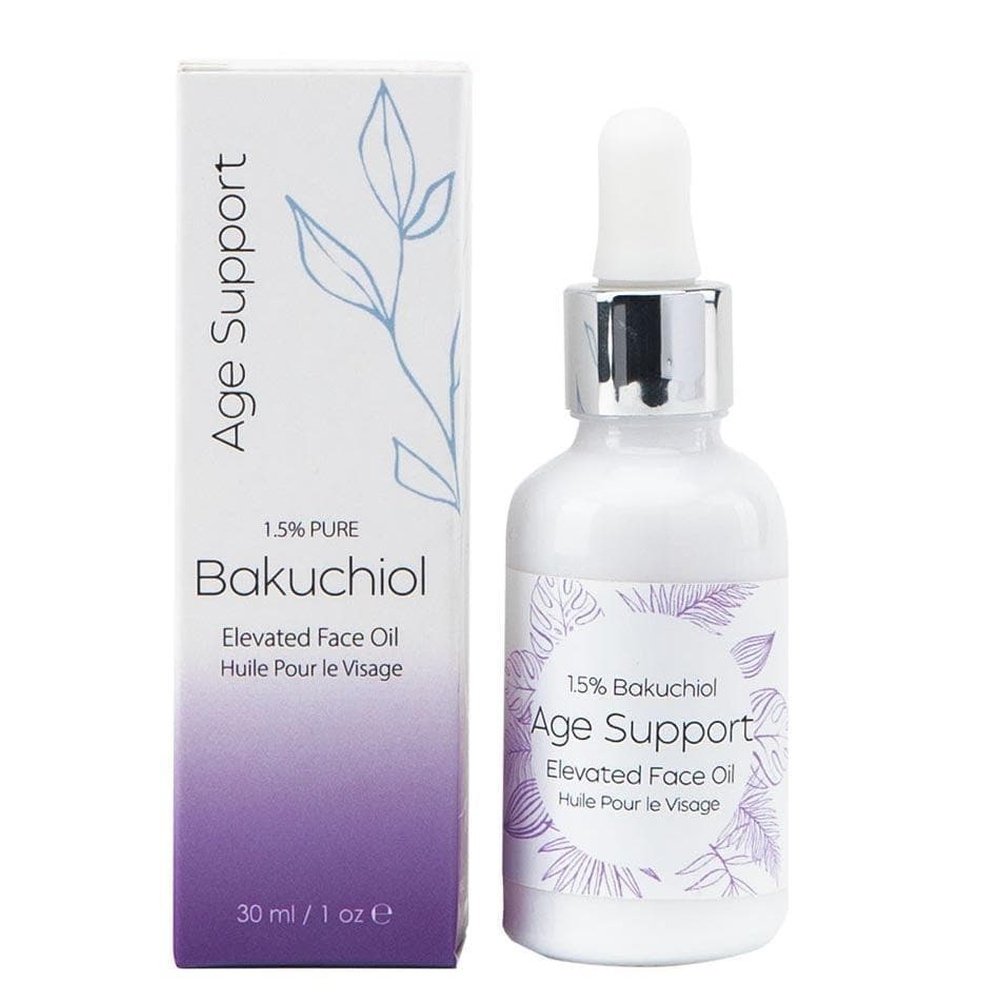
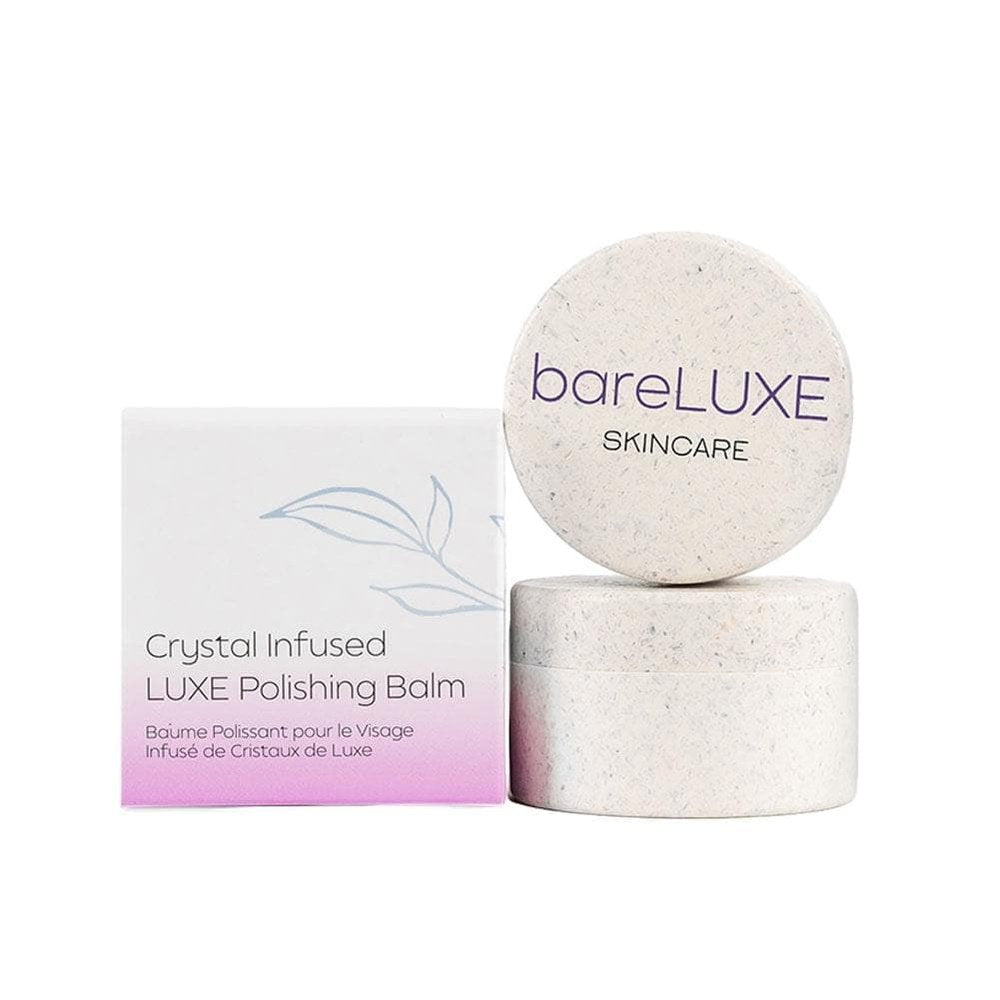
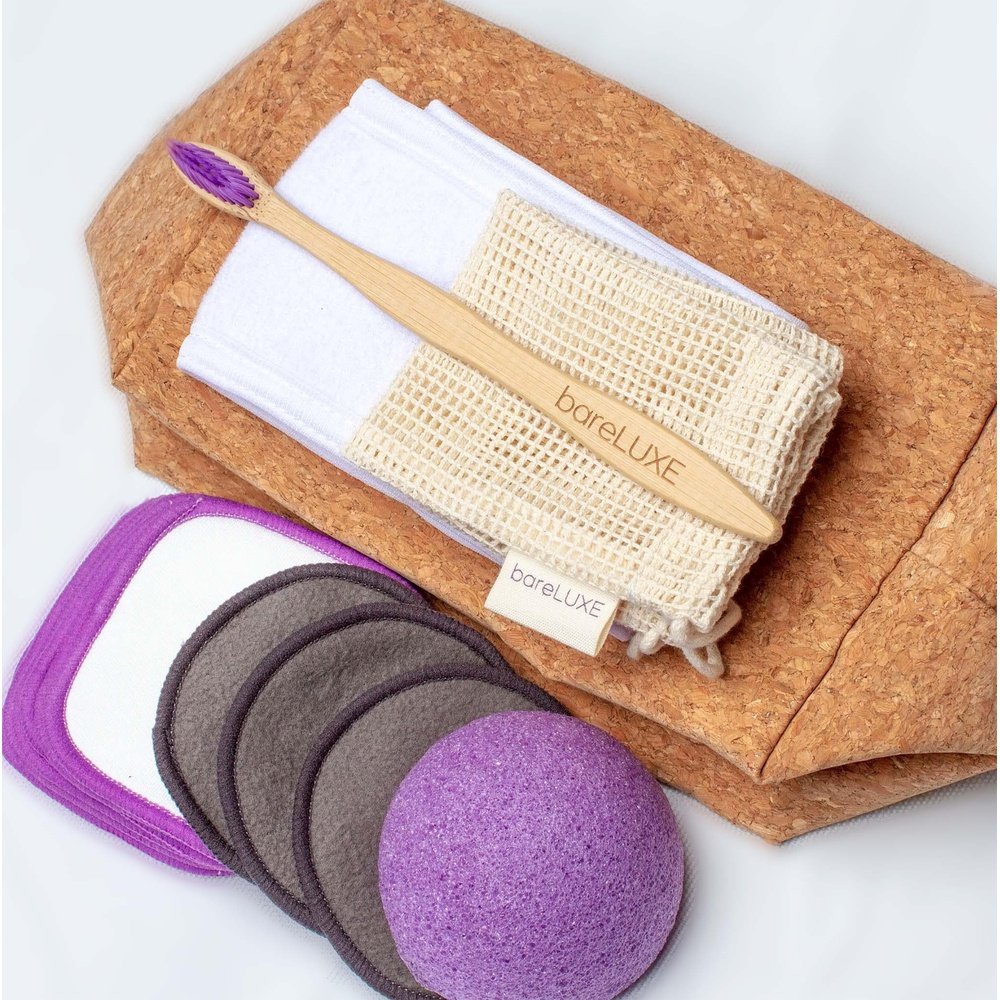
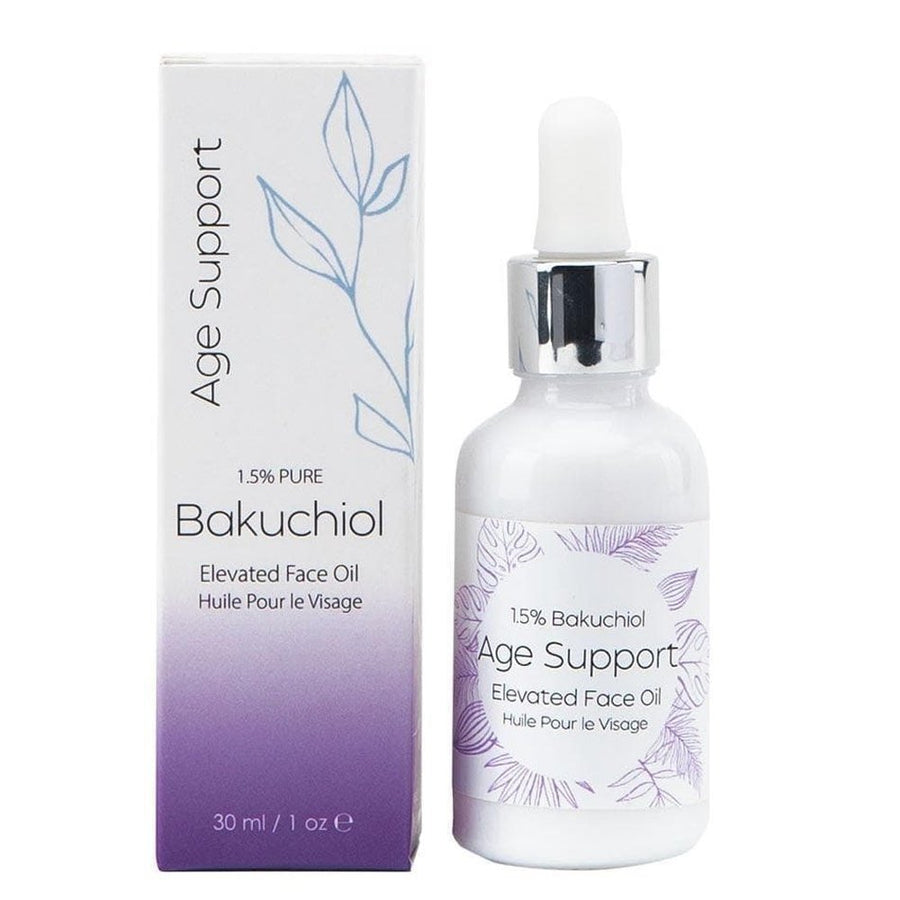
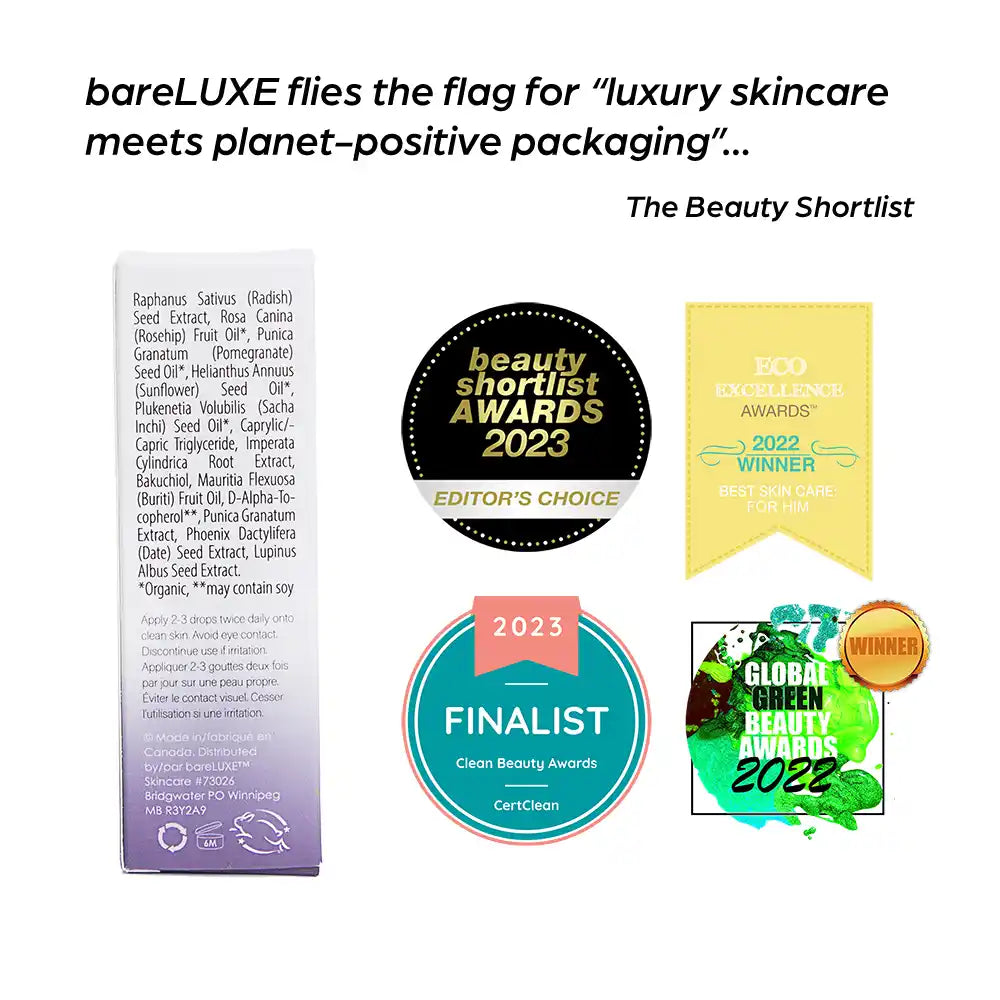
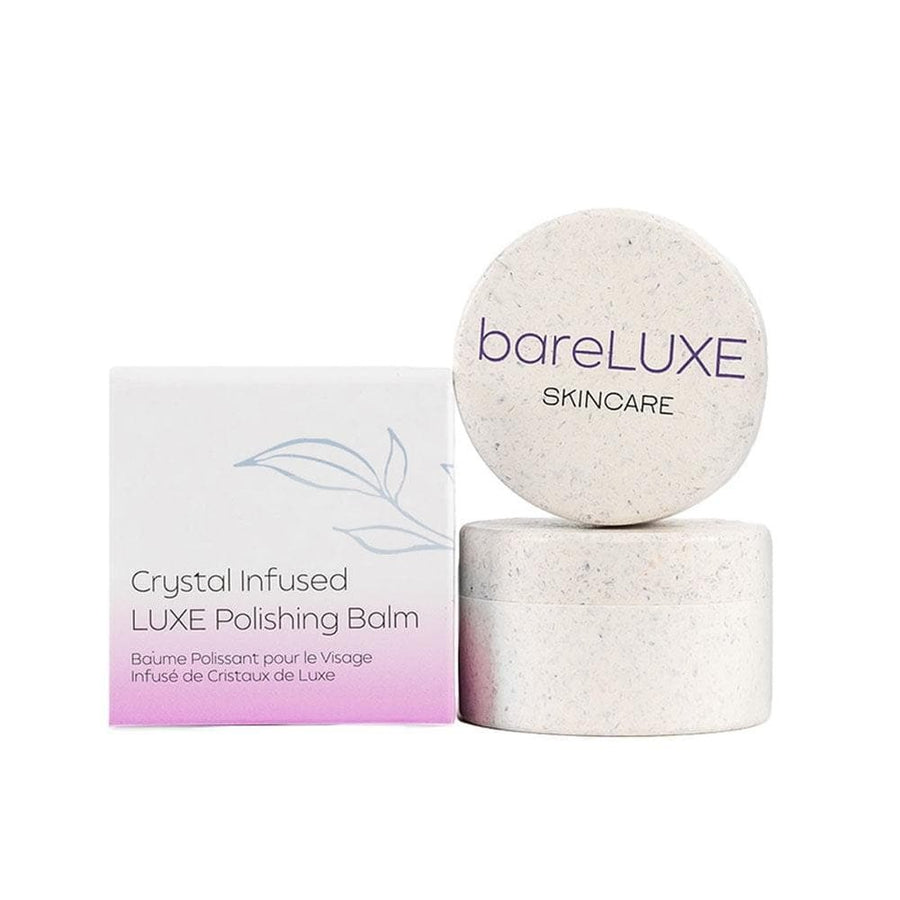
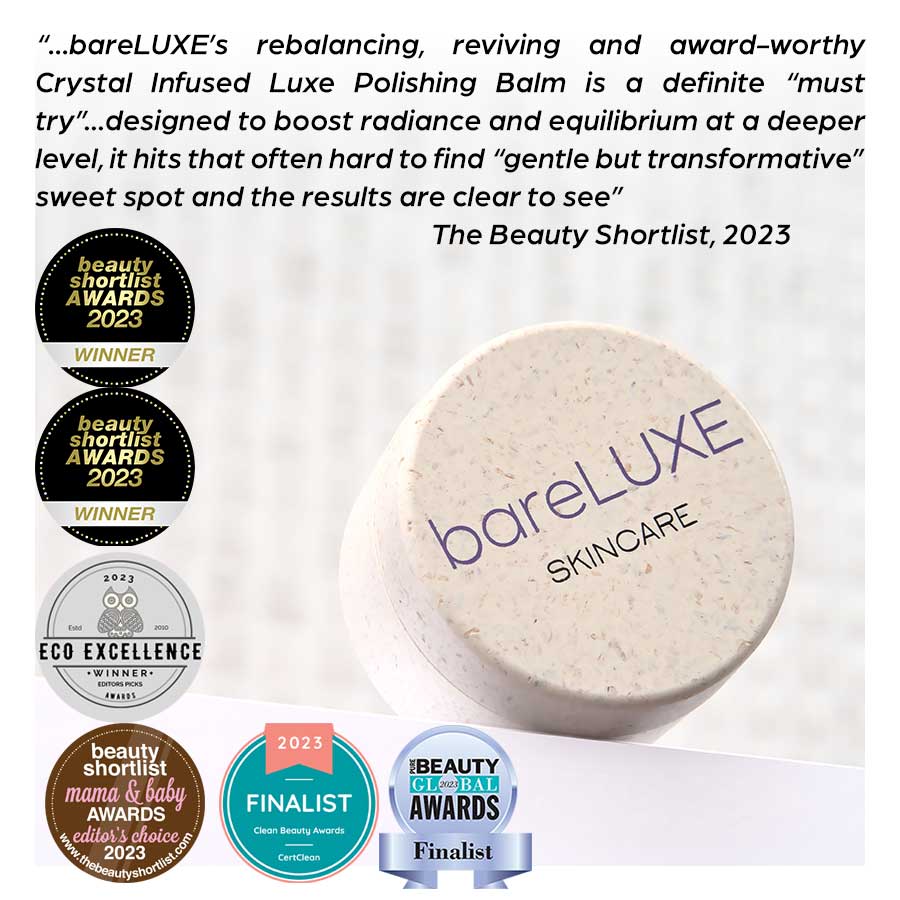
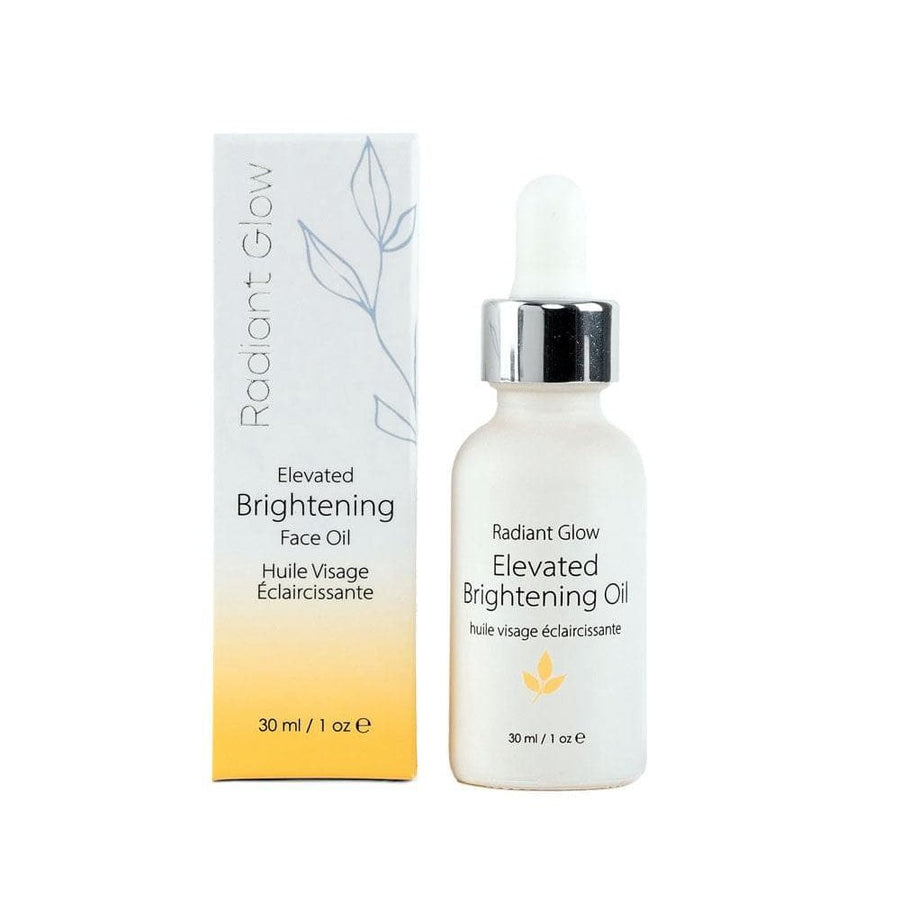
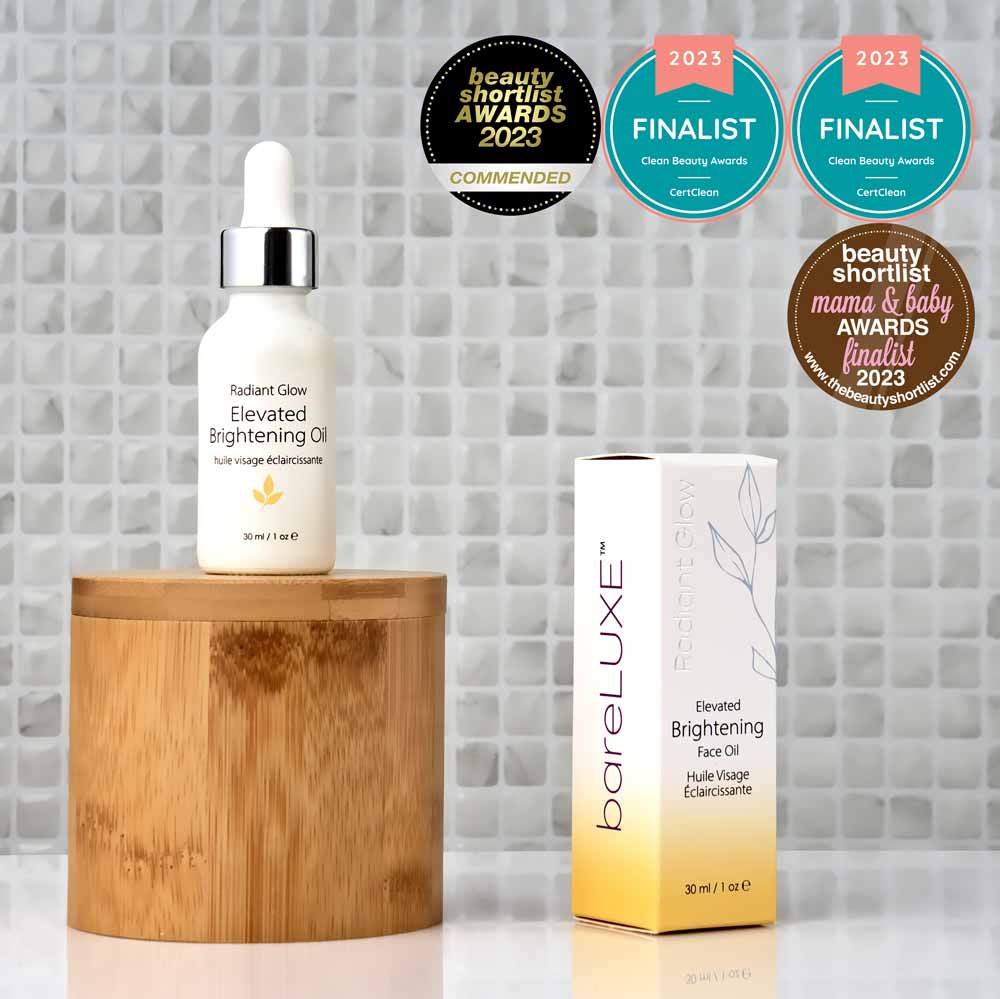
Leave a comment